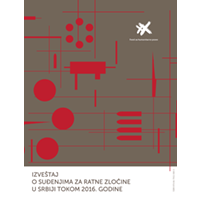
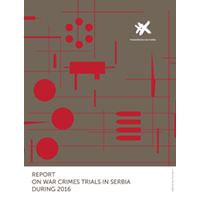 The Humanitarian Law Center (HLC) has monitored all war crimes trials conducted in the territory of Serbia in 2016 – that is to say, a total of 26 trials conducted by the War Crimes Departments of the Higher Court or the Court of Appeal in Belgrade, or the courts of general jurisdiction.
The Humanitarian Law Center (HLC) has monitored all war crimes trials conducted in the territory of Serbia in 2016 – that is to say, a total of 26 trials conducted by the War Crimes Departments of the Higher Court or the Court of Appeal in Belgrade, or the courts of general jurisdiction.
The Report on War Crimes Trials in Serbia during 2016 features a brief overview of all 26 cases observed and the HLC’s key findings on each case, which the public needs to be informed about. Given that a significant portion of the war crimes proceedings presented in the Report have been ongoing for a number of years, the previous annual HLC Reports on war crimes trials should also be consulted for a full appreciation of the course of the proceedings and the corresponding findings. The Report also covers trials for crimes that are not classified as war crimes by the relevant prosecutor’s offices of general jurisdiction; despite the fact that the circumstances of such cases indicate they do constitute war crimes.
The Report focuses particularly on the work of prosecutor’s offices and courts, notably in the analysis of indictments and judgments. An analysis of the work of other institutions involved in war crimes prosecution (the War Crimes Investigation Service of the Serbian Ministry of the Interior, the Protection Unit, etc.) could not be made within the context of each case as a result of the lack of publicly available information on their work.
The War Crimes Department of the Higher Court in Belgrade handed down first-instance judgments in three cases over the reporting period, and a judgement accepting a plea agreement concluded between the OWCP and a the defendant. The War Crimes Department of the Court of Appeal in Belgrade has issued six rulings on appeals against judgments passed by the Higher Court in Belgrade. The courts of general jurisdiction handed down four judgments. Eight OWCP’s indictments were confirmed in the reporting period against 15 individuals accused of a war crime against a civilian population.
The analyses of the cases in the Report are preceded by an overview of the general findings on war crimes trials in 2016, and a summary of the significant social and political events that had a bearing on the war crimes trials.
The Report on War Crimes Trials in Serbia during 2016 is available here.
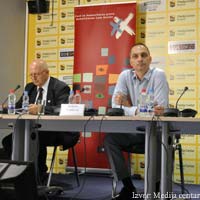







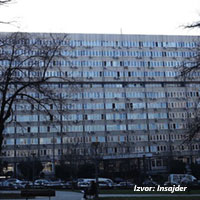
 More than a year after the adoption of the
More than a year after the adoption of the 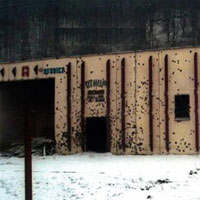



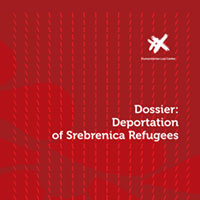 After the fall of Srebrenica on 11 July, 1995, an estimated 7,905 persons disappeared, mostly men considered by the Army of Republika Srpska as “able-bodied”. DNA analysis of the mortal remains of those found in mass graves, to date, has enabled positive identification of 5,977 persons killed in Srebrenica.
After the fall of Srebrenica on 11 July, 1995, an estimated 7,905 persons disappeared, mostly men considered by the Army of Republika Srpska as “able-bodied”. DNA analysis of the mortal remains of those found in mass graves, to date, has enabled positive identification of 5,977 persons killed in Srebrenica.
 On June 21st 2017, the Humanitarian Law Center (HLC) filed a criminal complaint with the Office of the War Crimes Prosecutor of the Republic of Serbia (OWCP) against Radojica Božović, a former high-ranking member of the Red Berets, as well as against two other members of this unit, for crimes committed in Doboj (Bosnia and Herzegovina) in the period from May to August 1992.
On June 21st 2017, the Humanitarian Law Center (HLC) filed a criminal complaint with the Office of the War Crimes Prosecutor of the Republic of Serbia (OWCP) against Radojica Božović, a former high-ranking member of the Red Berets, as well as against two other members of this unit, for crimes committed in Doboj (Bosnia and Herzegovina) in the period from May to August 1992.
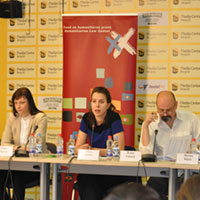
 On Thursday May 18th 2017, the Humanitarian Law Center (HLC) presented its sixth report on war crimes trials in Serbia. The report includes an analysis of 28 cases that were conducted before the courts in Serbia in 2016, placing them in the socio-political context that affects their processing.
On Thursday May 18th 2017, the Humanitarian Law Center (HLC) presented its sixth report on war crimes trials in Serbia. The report includes an analysis of 28 cases that were conducted before the courts in Serbia in 2016, placing them in the socio-political context that affects their processing. 
 The Humanitarian Law Center (HLC) has monitored all war crimes trials conducted in the territory of Serbia in 2016 – that is to say, a total of 26 trials conducted by the War Crimes Departments of the Higher Court or the Court of Appeal in Belgrade, or the courts of general jurisdiction.
The Humanitarian Law Center (HLC) has monitored all war crimes trials conducted in the territory of Serbia in 2016 – that is to say, a total of 26 trials conducted by the War Crimes Departments of the Higher Court or the Court of Appeal in Belgrade, or the courts of general jurisdiction.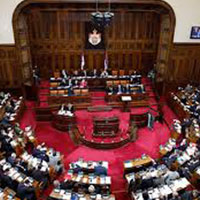
 On Monday, May 15th 2017, the National Assembly of the Republic of Serbia
On Monday, May 15th 2017, the National Assembly of the Republic of Serbia